|
Foreword: Please note that this is not a comprehensive list of questions. This is meant to only give a basic overview of Taiwan's transportation to those who have never been there.
What is the Taiwanese working environment/culture like? This depends on where you work. For a typical Taiwanese company, the boss is very powerful and employees are more passive. It is typical for everyone to wait for the boss to leave before they get off work. So, as you can image, Taiwanese people work lots of overtime. In addition, Taiwanese people like to have working connections, and give gifts to improve a relationship. If you take a gift such as chocolate from a coworker, or are treated to lunch, you are expected to eventually give back similar gift in return to keep the relationship going. What are table manners in Taiwan? I would say table manners are somewhat similar as America. If you follow American rules, you will not offend anyone; but be sure to not stick your chopsticks upright in your bowl as this is a symbol of death. Burping and other bodily noises such as slurping are somewhat as long as it is not overtly loud. Holding your rice bowl and using chopsticks is common practice. What gestures are rude in Taiwan?/ What is impolite in Taiwan? Showing the bottom of your feet. Throwing things Giving things with only one hand Sticking chopsticks upright in a bowl Giving someone a clock as a gift Not looking someone in the eye For more, check out this blog. Is Fengshui important in Taiwan? Yes. But it also depends of the person; many people are more superstitious than others, and some people don’t care. But in general it is an important principle. Are Taiwanese people friendly? Yes, they are some of the most friendly people in the world, especially to foreigners! Does/When Taiwan celebrates Chinese New Year (Lunar New Year)? This is dependent on the start of the lunar calendar which starts anywhere from January 21st to February 20th each year. In 2018, Chinese New Year day is on February 16th. When does Taiwan celebrate New Years? Taiwan celebrates both the Gregorian (Jan 1st) and Lunar (Jan 21st - Feb 20th) New Years. Does Taiwan celebrate Halloween? No. Does Taiwan celebrate Christmas?/ When Does Taiwan Celebrate Christmas? Dec. 25th. But they don’t really celebrate it except in a commercialized way (such as Christmas sales, lights, trees, Santa, and Christmas decorations), except for the minority of Christians in Taiwan. What language is spoken in Taiwan?/ What language do Taiwanese people speak? Standard Mandarin Chinese is the official language of Taiwan. However about 70% of the population can speak Hokkien (Taiwanese). Hakka and Aboriginal languages are also major languages spoken in Taiwan. When does Taiwan appear in Hetalia: Axis Powers? This is referring to the cartoon series in which countries are characterized. Click here for more details: When are Taiwan holidays? For a full list of Taiwan holidays and the days they fall on, click here. What kind of music does Taiwan listen to? Mandarin Pop, K-Pop, J-Pop, western classical and modern pop music are all appreciated in Taiwan. For more information, click here. What is the history of Taiwan? Please observe the following history of Taiwan: 1912: The Republic of China (ROC, current government of Taiwan) took control of all of mainland China after the Qing dynasty fell. 1945: Japan returned the island of Taiwan to the ROC. 1949: The ROC was defeated by the communist party in mainland China (PRC), and retreated to the island of Taiwan. The ROC protected the islands of Kinmen and Matsu (part of Fujian province) from communist invasion. The ROC was considered the true ruler of China by the UN. 1971: The ROC (Taiwan) was removed from the UN in favor of the PRC. Most nations broke diplomatic relations with Taiwan at this time. 2017: The ROC and KMT party still claim mainland China as its territory, but the ruling DPP party does not recognize this policy. What year is it in Taiwan? 2018 is ROC year 107. Why do Taiwanese people like Japan?/ Why does Taiwan like Japan? This has to do with Taiwan’s affinity for richer and modern countries, as well as love for Japanese culture. Japan colonized Taiwan in the early 20th century, and left a cultural impact that still lasts today. Many Taiwanese people also would rather affiliate and travel to Japan rather than Mainland China because it helps promote Taiwan’s differences with the Mainland and Independence in the region. How do you pronounce Taipei? Tie pay. Why did the plane crash in Taipei happen? TransAsia Airways Flight 235 (GE235/TNA235) crashed because the pilot mistakenly shut down both engines after one engine lost power. This caused the plane to fall into a free fall, in which the pilots steered for a landing in the Keelung River. How does Taiwan write the date? Year, month, day. Use the ROC year if you are writing a government form or document. Why does Taiwan use traditional characters? The Republic of China (Taiwan) has always used Traditional characters, and their control of China pre-dates communist rule. When the ROC retreated to Taiwan, they kept traditional characters as the standard system. It wasn’t until the cultural revolution in the 50’s and 60’s that the mainland PRC government designed the simplified system of characters. Taiwan, enemies with China, has thus never adopted this system of writing. Also, many Taiwanese people feel that traditional characters are more beautiful and preserve the culture and meaning of the Chinese language. Why does Taiwan speak Mandarin? After World War II, Japan gave the island of Taiwan back to China (ROC), whose government at that time had made Mandarin the official language of China. The ROC still controls Taiwan and Mandarin is still the official language. Where does Taiwanese language come from? Taiwanese or Hokkien originates from Fujian province in China, and is a sub-dialect of Southern Min. What religion are Taiwanese people? 35% Buddhist, 33% Taoist, 18.7% non-religious, 3.9% Christian, and 10% other Confucian/Taoist based religions. What do Taiwanese people eat for breakfast? So many things. Super traditional Taiwanese breakfast consists of some type of rice porridge and pork. But, soy milk and baked/steamed buns are also very popular. Also hamburgers, onion pancakes, sandwiches and a ton of other stuff. For more information, check out this blog, or just come to Taiwan and try some yourself! What do Taiwanese people eat for lunch? A typical lunch would be a Biandang (bento) or lunchbox, which includes a meat patty, rice, and vegetables. Noodles are also a popular lunch choice. What do Taiwanese people eat for dinner? Similar to lunch, locals eat biandang (bento) and noodles, but also hot pot and red bean soup during winter, along with western foods. Who is Taiwan Lannister? Tywin Lannister is a fictional character in Game of Thrones and has nothing to do with Taiwan. Who is Taiwan Jones? Taiwan Jones is an American football linebacker that plays in the NFL. Here is his Twitter account. How do I watch Taiwan online dramas? Search this on Google. You can also find a list here. Who is hungry girl in Taipei? This is a popular Taiwan food blog run by Joan H. Go check it out here! Why is the grand Hyatt hotel in Taipei haunted? The Grand Hyatt Hotel is believed to be built on an old POW camp on which people were executed, and is thus haunted. The Hotel has refuted these claims, stating that the Hotel was only built on top of a munitions warehouse. Have any more questions about Taiwan's culture? Please leave them in the comments below, and we might just add them to the list! Please like, follow, and share to help everyone know that Taiwan is a friendly and inviting place to travel year round!
0 Comments
After searching through the historic buildings in Nangang I became aware of a certain mine in the mountains. This mine is only one of hundreds of abandoned coal mines in Taiwan, as the coal mining industry has essentially been shut down. From what I have found, coal mines have not been covered extensively in the blogsphere. Some notable English blogs on the subject are from the blog Over the City, featuring two blogs about coal mines, here and here.
However, the best blog about coal mines is by Taiwanese Blogger Willy Chang, the Shepherd's Wolf. 我不會把這篇翻成中文因爲“放羊的狼”已經寫了一篇更完整的中文部落格。 History of Coal Mining in Taiwan: Before I show you my adventure, I’d like to give a background of the coal mining industry in Taiwan. If you aren’t interested, you can just skip this section. Coal mining in Taiwan started during the Dutch rule, starting in Keelung and Tamsui. The Dutch started mines there, but didn’t have sufficient transportation infrastructure to move large amounts of coal. The Koxinga era didn’t see much coal mining. After the Qing dynasty took back Taiwan following Koxinga and his son’s death, the government strictly banned mining of any kind in order to restrict the people from hiding in the mountains and starting rebellions. Despite this, coal was still mined and sold in on the black market in Taiwan. During and after the Opium wars, many English and Americans scouted Taiwan for possible coal deposits. In 1864, despite the ban on coal mining, there was at least 4315 tons of coal exported out of Taiwan. Pressure from western countries to open ports in Asia that had water and coal available to power steam ships forced the Qing government to finally allow legal coal mining in 1870. After the ban was lifted, the size of coal mining operations was still very small. In 1874, due to Japanese influence, Liu Mingchuan convinced Beijing to allow advanced mining machinery in Taiwan, starting in Baodouzi, Keelung, and new mines were started under government control. During this time, many miners died due to poor and unsanitary working conditions and the fact that the government officials running the mines were inexperienced and did not run effective operations. During this time, infrastructure and railways were lacking in Taiwan, halting transportation of coal. By 1892 after the Sino-French war, government owned mines were closed and the industry became privatized. In 1895, Taiwan produced more than 10,000 tons of coal. By this time, Liu Mingchuan had constructed the Keelung-Xinxhu railway, helping alleviate the coal transportation problem. In 1895 Japan took control of Taiwan and Penghu as a result of the Sino-Japanese war, and began to survey the forests and geography to maximize capitalist gains for the empire. Coal would be an important part in industrializing the Empire, as it was the major fuel source at the time. In 1896 Japan opened the coal mining industry to the public, and the next year the price of coal doubled, as demand increased. But as local know how and technology was lacking, imported coal from Japan was actually cheaper than producing it in Taiwan. However in 1906 the coal industry in Taiwan gradually improved. New mining machinery moved to Tianliao, Keelung to support Japan’s Naval fleet. Sugar factories in southern Taiwan also needed a constant supply of coal. During the First World War, the Empire of Japan became an important supplier of coal to western countries fighting in the war, and Taiwan’s coal exports gradually increased. In 1917-1918, Japan opened 194 new coal mines in Taiwan. They also built the Pingxi Railway which became the most productive site for coal mining, in its heyday producing 220,000 tons of coal per year. (The Taiwan coal mine museum now lays here, along withHoutong cat village). However, after World War I ended, the demand for coal declined, many mines closed, and there was widespread overproduction. But as industrialization continued in Taiwan, so did the demand for coal. To keep production going constantly, Japan provided subsidies to coal mines. At the start of the second Sino-Japanese war, demand for coal rose dramatically, as did the price of coal. But also due to losses of manpower during the war, coal production saw a huge drop. In 1945 Japan lost the war and Taiwan and Penghu were given back to China. Not long after this, the remaining government owned mines were transformed into the Taiwan mining company, but by then mining had all but stopped. However by 1949 after the KMT retreated to Taiwan, Taiwan became an important economic partner with America, and coal production began to soar to 1,650,000 tons of coal in 1951, mainly to fuel Taiwan’s coal power plants and other large industries. With economic support from the USA, new mines started opening. In 1960 Taiwan produced 4 million tons of coal. Due to demand and the free market, coal mines gradually started closing and production went down, until by 1964 Taiwan produced only 2.8 million tons of coal. In 1969 Taiwan Power started using gas power plants which were cheaper than coal, lowering demand. By 1977 Taiwan had produced only 2 million tons of coal. During this time, Taiwan also improved safety regulations for coal mines, but accidents still kept happening, forcing the government to close quite a few mines. Here is a list of mining incidents in Taiwan. The lone survivor of one1984 mining incident that killed 93 people survived by cannibalism and drinking pee over a period of 90 hours inside the mine. He later said that if he had to do it all over again, he would still have eaten his coworkers. Local coal soon became more costly to mine than just importing it. In the year 2000, Sanxia’s Lifeng Mine shut down operations, and Taiwan’s mining company closed, and thus all coal mining in Taiwan effectively stopped. History of Xinfeng Coal Mine:
A few weeks ago I had the pleasure of playing a round of 18 holes of golf in Taiwan for the first time. I had been to driving ranges in Taiwan a few times before, but never had the time or company to play a good 18 holes. Last summer I brought my golf clubs back from America because my boss told me that if I had clubs, he would take me out to play. Much to my surprise, golf culture in Taiwan is much different than back in the States.
幾個禮拜前,我榮幸參加第一次在台灣的18洞高爾夫球比賽。 我以前曾經在台灣練習過幾次,但從來沒有時間或其他人陪伴我打18洞。 去年夏天,我把高爾夫球桿從美國帶回來因為我的老闆告訴我,如果我有球杆,他會帶我出去打。 令我驚訝的是,台灣的高爾夫文化跟美國很不一樣。 Preparation 準備: I had some mental preparation before I went; my boss told me that I needed to wear a collared shirt, I needed real golf shoes, and I needed my own clubs. These are things that cannot be rented at the course. So when I was in America over the summer, I bought some cheap shoes at Ross that seemed to pass as golf shoes. I don’t know what they are, but I’m guessing that they are actually track shoes. They don’t have spikes, but I guess those aren’t required. The internet is sadly void of any articles telling us what the guidelines for golf shoes are, much less in Taiwan. Anyway, that didn’t matter because when we got to the course, no one checked my shoes at all. 我打之前有一些心理準備。 我的老闆告訴我,我需要穿領襯衫,我需要穿真正的高爾夫球鞋,而且我需要有自己的球杆。 這些東西是不能在球場租用的。 所以夏天的時候在美國,我在Ross買了一些便宜的鞋,看起來像高爾夫球鞋一樣。 我不知道它們是不是,但我猜他們實際上是跟踪鞋。 他們沒有尖峰,但我想這不是必需的。 網路上可悲的是沒有任何文章告訴我們高爾夫鞋到底是什麼,在台灣更是如此。 無論如何,這並不重要,因為當我們走到球場,根本沒有人檢查我的鞋子。 Later, I went to a local Net and bought a cheap quick-dry polo for 100 NT, and I borrowed a company cap from our marketing manager (I do not own any baseball caps). I wore some tan Khakis and a white belt because that seemed to be the golf style in Taiwan from what I could tell from Google images. 後來,我去了 NET,買了一個100塊的快乾馬球,我從我們的行銷經理(我沒有任何棒球帽)借了一個公司的帽子。 我穿了一些棕褐色的卡其色和一條白色的腰帶,因為從我從Google的圖片中可以看出,這似乎是台灣的高爾夫風格。
Air hosing my shoes after the game. 打完之後清潔鞋子。
Playing 18 Holes of Golf 打18洞的經驗
My boss woke up at like 4:30 AM and drove to my house to fetch me, after which we picked up our client. Then we drove to the course in Taoyuan. When we got there, we had to register at the front desk and pay up front. Apparently we also missed free breakfast because we thought we would miss our tee time. Then, they gave us electronic locker keys where we could put out stuff. From the get-go, we had caddies carrying our golf bags around. 我的老闆在凌晨四點半醒來,開車到我家去接我,之後我們接我們的客戶。 然後我們開車去桃園。 當我們到達那裡,我們必須在前台登記,並付錢。 顯然我們也錯過了免費早餐,因為我們認為我們會錯過我們的開球時間。 然後,他們給了我們電子儲物櫃鑰匙,我們可以放出東西。 從一開始,我們的球童都帶著我們的高爾夫球袋。
We had two caddies for the three of us, who were two ladies that I would be tempted to call Amahs. We also had a golf cart which I’m sure is also mandatory for the course. Throughout the game our caddies picked out our clubs for us and carried our clubs. It seemed they knew much more about golf than me. I asked them if they ever played. Their answer was that their job was already tiring enough, and so they never played the game themselves. Sad.
我們三個人都有兩個小姐,他們是阿媽。 我們也有一個高爾夫球車,我相信這也是強制性的。 在整個遊戲中,我們的球童 (阿媽們)為我們挑選了我們的球杆,並攜帶了球杆。 看來他們對高爾夫比我更了解。 我問他們是否玩過。 他們說工作已經夠累了,所以他們從來沒有玩過。 傷心。 During the game I sucked. I hadn’t played 9 or more holes in over 2 years. I think my best hole was a Bogey. The rest were probably +3 and above. Once I stopped using my 1 wood completely it helped lower my score a bit. Also I think I hit just about every water hazard and hit my ball out of bounds multiple times. Many balls were lost. My boss didn’t do much better though, so he was glad to have me around as his “Angel.” Our client destroyed us with multiple pars and at least one birdie. After 9 holes we rested and had some nice cold green bean soup. Then we went on for another grueling 9 holes in which I became gradually worse. My back and shoulders were very sore for the next few days. 在比賽中,我超爛的。 我兩年內沒有打過9個以上的洞。 我認為我最好的洞是一個加一。 其餘的可能是加3以上。 一旦我完全停止使用我的1木頭,它有助於降低我的分數。 另外我覺得我幾乎擊中每一個水障礙,很多次打出我的球出界。 許多球丟失了。 我的老闆雖然做得併不好,所以他很高興能把我當作自己的“天使”。我們的客戶至少有一隻小鳥摧,完全打敗我們。 九洞之後,我們休息了一下,吃了一些好吃的冷綠豆湯。 然後,我們繼續了另一個艱難的9洞,我逐漸變得更糟。 在接下來的幾天裡,我的背部和肩膀非常疼痛。 After we finished there were compressed air pumps with which we cleaned our shoes (pictured above). Then we moved back into the locker rooms where my boss proceeded to shower along with everyone else there. I had not brought an extra pair of clothes and thus awkwardly sat there while I waited for my boss to come out of the shower. 我們結束後,有壓縮空氣泵,我們清洗我們的鞋子(上圖)。 然後我們回到更衣室,在那裡我的老闆和其他人一起洗澡。 我沒有帶額外的衣服,因此在我等待老闆從淋浴中出來的時候坐在那兒笨拙。 After changing clothes, we dined at a restaurant inside the golf club on the top floor. The service was pretty bad for being the only ones there, but the atmosphere was nice. After our lunch of a few expensive dishes, we made our way home. 換衣服後,我們在頂層高爾夫俱樂部內的一家餐廳用餐。 該服務是相當還好因爲隻有我們在場,但氣氛很好。 在我們吃了一些昂貴的菜餚之後,我們回家了。 What to Bring When Golfing in Taiwan 要帶的東西:
Note: Don't worry about water. They will give you plenty of water. Also I think golf carts are mandatory. 注記:不用帶水,高爾夫球車也是必要的。 Price 價錢: This I am not too sure about but you can check out this forum. I have heard courses around Taipei to be around 3000 NT per round but other places can be as cheap as 1500 NT or so. You should call or check online for the golf course you want to go to. What I do know is that golfing in Taiwan is going to be much more expensive than a public course in the US. Driving ranges are very cheap, with a large bucket of balls going for about 100 NT. As for a membership, my boss said he paid 700,000 NT a year for his. Think about that. 這我不太確定,但你可以看看這個論壇。 我聽說台北周圍的課程每個禮拜大約3000新台幣,但其他地方可以便宜到1500新台幣左右。 您應該打電話或在線查詢您想要去的高爾夫球場。 我所知道的是,台灣高爾夫將比美國的公共課程昂貴得多。 練習場非常便宜,一大桶球大概需要100新台幣。 至於會員,我的老闆說他每年支付70萬新台幣。 誇不誇張。 Conclusion 結論: Playing golf in Taiwan is not the same as in the States. Your caddy will choose your clubs for you, unless you suggest otherwise. Also, golfing is also much more expensive than a public course in the US. Most of all, golf in Taiwan is a very formal ritual reserved for the elites, and is very much a rich man's sport. 在台灣打高爾夫跟美國不一樣。你的球童會選擇你的球桿。 而且,高爾夫比美國的公共球場要昂貴得多。 最重要的是,台灣的高爾夫球是一個為精英而非常正式的儀式,而且是非常適合有錢人的運動。 Thanks for reading our experience. Please like comment, and share below! Stay tuned on our social media channels for our next adventure! 感謝您閱讀我們的經驗。請暗讚,並在下面留言和分享! 請繼續關注我們的社交媒體渠道,來指導我們的下一次冒險! |
Author 作家I am an American expat who has extensive experience living, working, and traveling in Taiwan. In my day, I had to learn many things about Taiwan the hard way. But I have come to learn that Taiwan is one of the best places in the world for Foreigners to live. This blog does not represent the opinions of every foreigner in Taiwan. I am just trying to help others learn more about this beautiful country. Categories
|


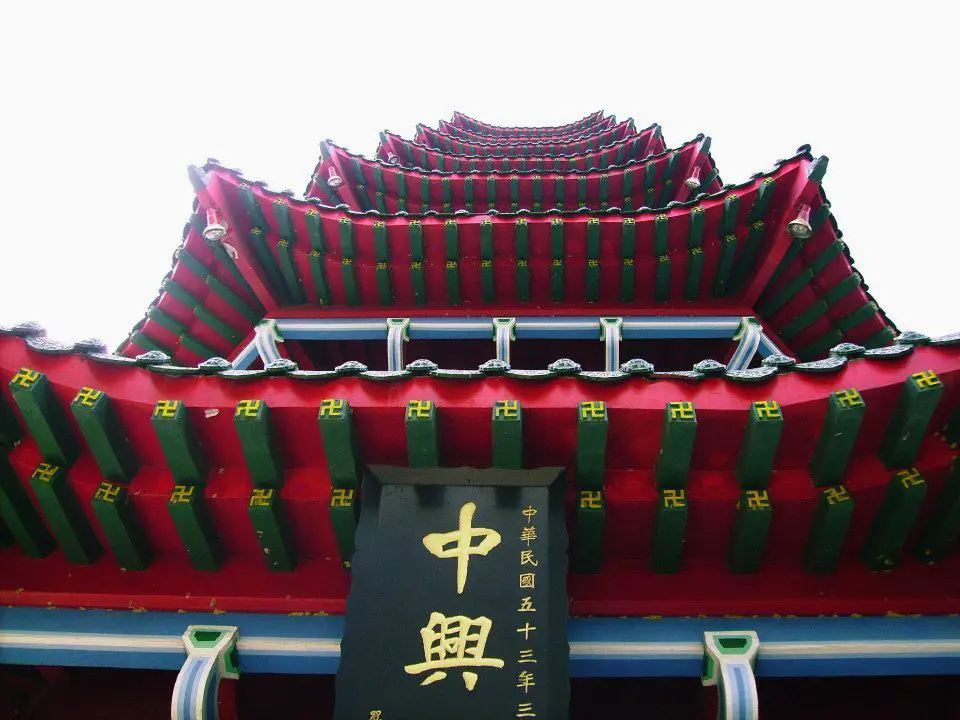
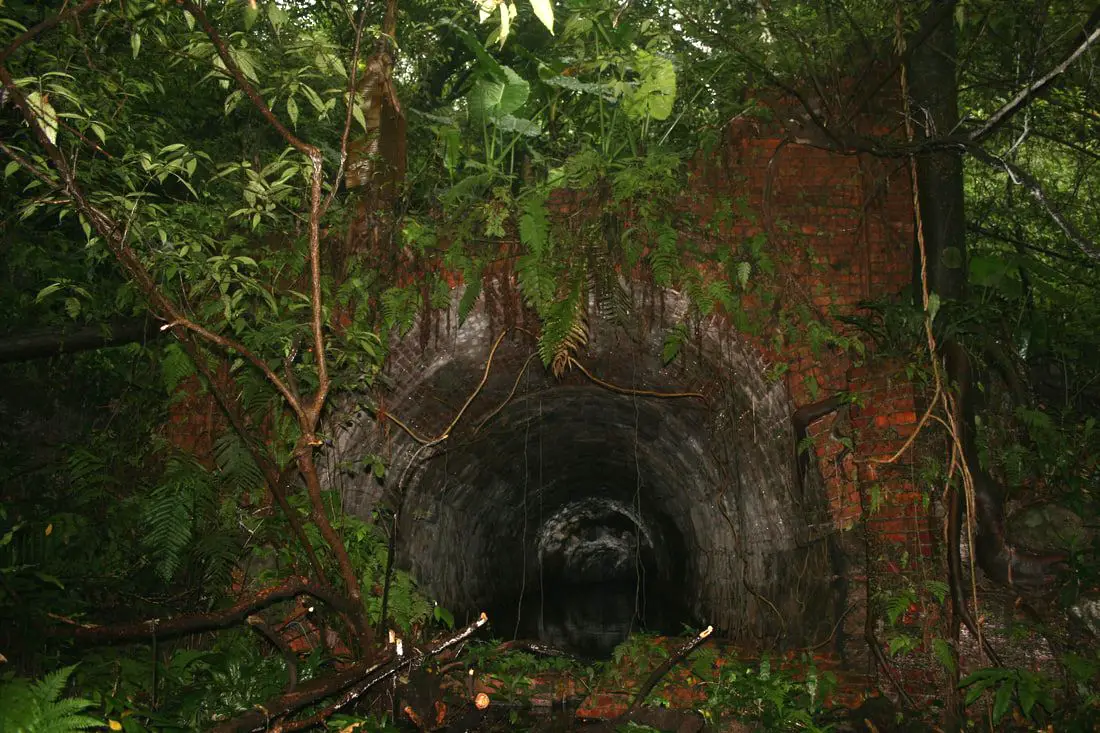
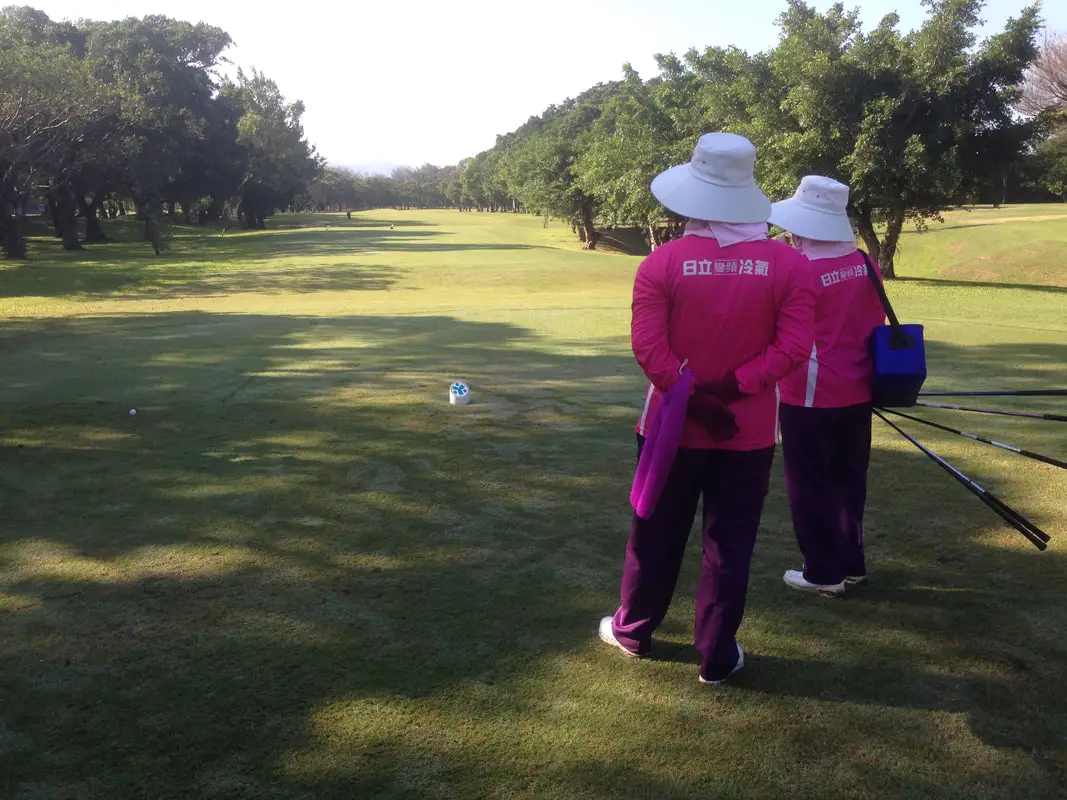
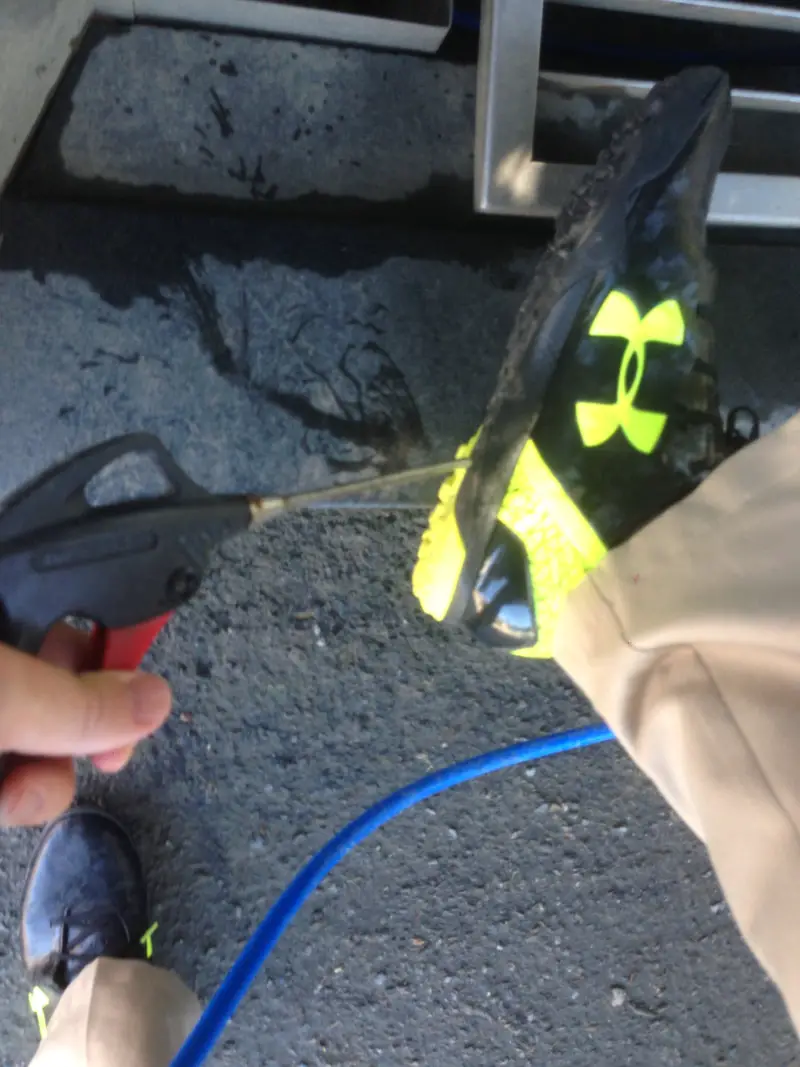
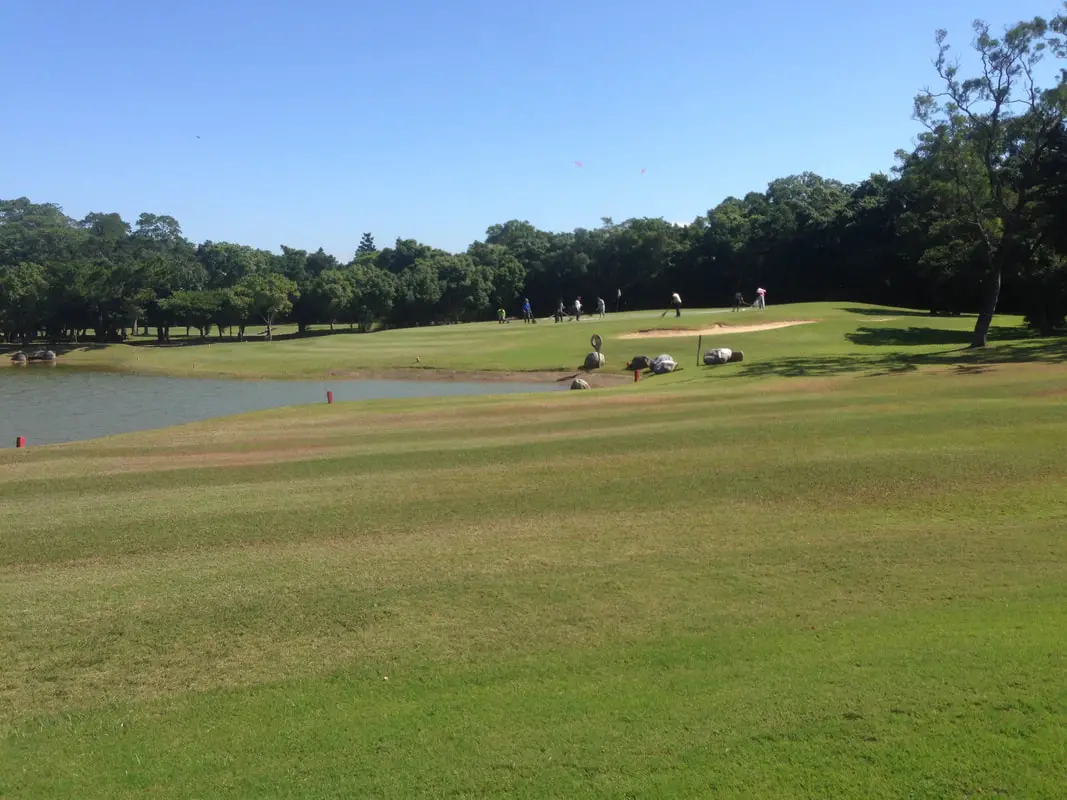
 RSS Feed
RSS Feed
